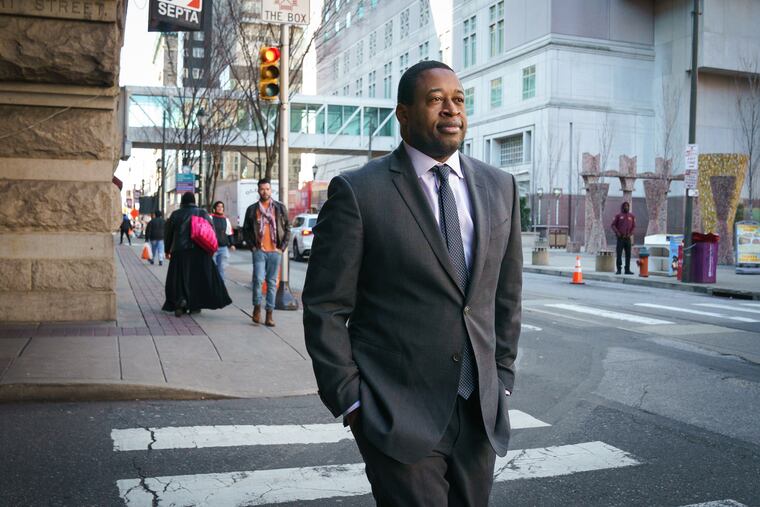Sure, there are plenty of hacks in the Philly primary. But there are reasons for hope. | Mike Newall
In this circus of a primary, turn your eyes to the rest of the crowded field, where exciting new candidates are running against those relics of the past.

Friends, let’s pour one out amid the circus that is this City Council primary: We can no longer vote for Willie Singletary.
Yes, Willie for Philly, the disgraced traffic judge who spent 20 months in federal prison for lying to the FBI, is off the at-large council ballot, at least for now. So is Mike Stack, he of the plasticine hair, who was drummed out of the lieutenant governor’s race last year after he and his wife verbally abused and mistreated employees.
Stack survived challenges to the nominating petitions he collected to run for an at-large Council seat, only to be rebuffed by Philadelphia’s cruelest mistress, the Horn & Hardart coffee can, from which sprung forth a ballot number too unfavorable for our Mike.
At least Singletary made it that far. As my colleagues Chris Brennan and Julia Terruso have chronicled, his old Traffic Court buddies, Thomasine Tynes and Mike Lowry, also imprisoned in the 2013 sting, generated nominating petitions for their own piece of the City Council pie but never submitted them (Lowry now insists he never intended to run). Singletary promises to appeal.
We can take solace with Bobby Henon, who’s literally under federal indictment. But a challenger in his Council race? We dare not speak the words.
Primary season! That blessed time when the entrenchment of Philadelphia’s Democratic machine — and the shamelessness that goes with it — fully reveals itself. The sheer gall of party hacks, some of them convicted of abusing their offices, who still somehow feel they are owed a Council seat in the country’s sixth-largest city. Who see a place in City Hall not as an honor, but a retirement plan, and are furious to be denied it.
So pour one out for our fallen friends, and then turn your eyes to the rest of the crowded field, where exciting new candidates, some already far overqualified, are running against those relics of the past, embodying the contradiction that defines our city in 2019: the pull between the status quo and actual change — and the energy and diversity that come with it.
Take the City Council at-large race. It’s full of firsts and first-timers.
There’s Erika Almirón, a tireless activist for the immigrant community in a city whose welcoming policies have been directly challenged by the president.
There’s Deja Lynn Alvarez, a member of the Mayor’s Commission of LGBT Affairs, who would be Philly’s first trans councilperson, and who Tuesday, in a scene embodying the worst of Philly politics, endured the taunts of a rival campaign manager who questioned her ethnic identity.
There’s Justin DiBerardinis, son of a longtime public servant, and someone who’s done real work in neighborhoods.
Then there’s the City Commissioner race, which, thanks to Anthony Clark, has the lowest possible bar for entry. To do a better job than Clark, who’s mercifully not running for reelection, you literally need only show up occasionally and remember to vote.
Even in this race, the talent pool of challengers runs deep. There’s Jen Devor, a respected South Philly reformer, and Moira Bohannon, a former education lobbyist who helped draft the Dream Act.
And Kahlil Williams, a 40-year-old attorney at Ballard Spahr with such deep experience in voting-rights work that he seems almost comically overqualified for the job Clark treated like a chore.
After Penn State and Penn, he earned his law degree at Columbia, squeezing in stints at the Brennan Center for Justice and the NAACP Legal Defense and Education Fund. In 2006, as a fellow for the Congressional Black Caucus Foundation, he helped to reauthorize the Voting Rights Act of 1965. It was his job to prep witnesses for questioning, including the attorney of the Rev. Dr. Martin Luther King Jr.
Williams doesn’t think he’s overqualified. Just the opposite.
“The qualifications I have are exactly what are required of the office,” he told me. “We have to set our expectations higher. And that’s part of what this election is about. People are going to be on the ballot that really do represent the best of what Philadelphia has to offer.”
He’s right. You just have to look past the circus.